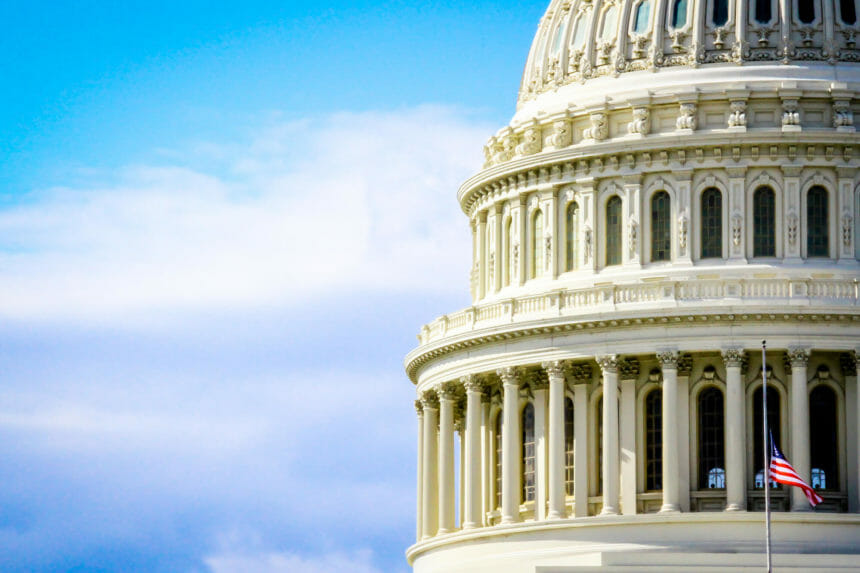
Senior living industry leaders said Wednesday that they will continue to press the federal government for additional coronavirus relief — and urge owners and operators to do so, too — after the House passed a revised American Rescue Plan Act “without meaningful support” for operators and President Biden indicated he would sign it into law.
The House originally had approved the legislation Feb 27, and the Senate passed a revised version on Saturday before sending it back to the House to be reconciled into a final bill.
Argentum President and CEO James Balda said relief for long-term care providers “remains noticeably and alarmingly absent” from the act’s provisions.
“Senior living providers have been left without meaningful support in this latest package, despite their caring for the most vulnerable population for over a year,” he told McKnight’s Senior Living. “But the absence of support doesn’t indicate a lack of effort nor a lack of awareness.”
Balda noted a grassroots campaign begun over the past several weeks, during which time the association worked with the office of Sen. Susan Collins (R-ME) to introduce an amendment that ultimately did not pass. “We do believe that we are being heard,” he said.
As operators continue to incur expenses, “there remains a critical need for targeting support in future legislation and most critically through what remains in the Provider Relief Fund,” Balda said. “We are continuing to press the administration to distribute these funds as soon as possible … [a]nd we are continuing to push forward with our education and advocacy efforts with key members of Congress.”
‘Critical’ that owner/operators reach out
American Seniors Housing Association President David Schless said the group was disappointed that the legislation did not include ASHA’s priority to replenish the Provider Relief Fund. He noted, however, that the legislation does provide $350 billion to state and local governments to assist with their COVID-19 relief and mitigation efforts.
“We are encouraged that allowable uses of the funds include providing aid to affected industries and believe senior living should be eligible for some of these relief funds,” he said.
The act also includes funds for premium pay to essential employees or grants to their employers, “which we also believe may be a source of relief for senior living employers,” Schless added. Premium pay is capped at $13 per hour or $25,000 per worker, he noted.
“Notwithstanding revenue loss, the biggest cost driver throughout this pandemic for senior living has been the additional staffing costs required to keep residents safe and communities open,” Schless said. “To gain access to these funds would be a significant boost to this industry. However, it will be critical that senior living owner/operators reach out to their state and local government officials and request this assistance.”
ASHA will be contacting the National Governors Association to “underscore the significant efforts by the industry that have largely gone unnoticed and ask that senior living, including independent living, be prioritized for funding relief,” he said. Additionally, Schless said, the association will be advocating for another allocation from the Provider Relief Fund and urging congressional policymakers to support the effort.
No relief for affordable senior housing
A LeadingAge spokeswoman noted that the act contains provisions to help with COVID mitigation and vaccination; additional funding for home- and community-based services; assistance to renters, landlords and homeowners to help people keep their housing; and funds for states to provide premium pay to essential workers.
“But there is still work to do to support older Americans because the bill leaves out relief for affordable senior housing providers for COVID-related services,” the spokeswoman said.
Specific to skilled nursing providers, the legislation authorizes $250 million to states for strike teams for nursing homes with COVID-19 outbreaks, to assist with clinical care, infection control or staffing for up to a year after the public health emergency ends. The bill also appropriates $200 million for quality improvement organizations to provide infection control and vaccination uptake support to nursing homes during the public health emergency.



